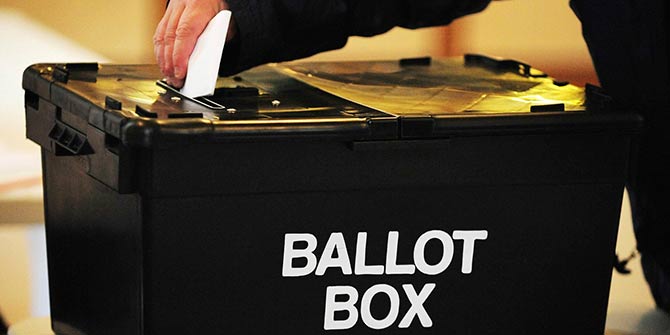The new Africa Initiative Seminar Series kicked off on Wednesday 6 October here at LSE. Dr Joanna Lewis of the International History Department opened with a look back at former British Prime Minister Harold MacMillan’s famous “wind of change” speech.
LSE’s new Africa Initiative Seminar Series made its debut last week as Dr Joanna Lewis, a lecturer in the International History department, re-examined Harold Macmillan’s iconic “wind of change” speech delivered to the South African Parliament in 1960.

This speech is highly revered in the literature on British decolonisation in Africa which focuses on the high politics of a rapid hand-over of power thanks to the apparent pragmatism of Macmillan.
After setting out the origins, aims and key passages of the speech, particularly the well known phrase about “the wind of change is blowing through this continent ” referring to what Macmillan termed national consciousness (not nationalism), Joanna pointed out that much of it was not new and he hadn’t written most of it anyway.
Newspapers at the time covered his apparent denunciation of apartheid (he never actually used the word) in that he had said Britain rejected the inherent superiority of one race over another. Indeed, the South Africans initially liked the speech especially since he criticised any boycott of South Africa.
The importance of press coverage – at the time and now to historians – hitherto neglected, was one of the themes of the talk. Macmillan had been keen to have a large British press corps present and they rushed to present the speech as a triumph of British liberalism.
Joanna went on to critique the speech and present an alternative interpretation by comparing it to the reality of what was happening on the ground at the time in Northern Rhodesia – now Zambia (Macmillan visited that colony just before South Africa on his big tour).
Using newspapers, newly-found sources and returning to older ones, Joanna reconstructed the four-day visit and went on to suggest that the speech and visit were irrelevant to African nationalists, ignored by white settlers, and was playing catch-up with a speech made by the head of the mining company RST, the apparently racially-enlightened Sir Ronald Praine.
Moreover, Macmillan refused to meet with trade union representatives who had written long submissions about the poor treatment of Africans by the mining companies and the growing racism in the colony. Only one British newspaper called for Macmillan to make a statement on the “evil of the colour bar” which he did not.
Yet, ultimately she concluded, this remains a great political speech. The ability of Macmillan to use the press and tour in order to maintain the veneer of an imperial power in charge, to make abstract statements on race, and to suggest national consciousness was being recognised (while on the ground nationalists were still being arrested and harassed) allowed British people to feel good about their empire.
It soon discharged the colonial state from the messy business of sorting out a planned transfer of power in racialised societies by encouraging unitary state nationalists (not trades unions) to work hand in glove with big business: “Imperial decline had never had it so good”.
Joanna Lewis’s latest publication is entitled “Rivers of white: David Livingstone and the 1955 commemorations in the lost “Henley-upon-Thames of central Africa” in Giacomo Macola et al Living the End of Empire: Politics and Society in late colonial Zambia (Brill, 2011)
LSE’s Africa Initiative Seminar Series will take place on alternate Wednesdays. Please check the Events section of this blog for more details of upcoming seminars.




